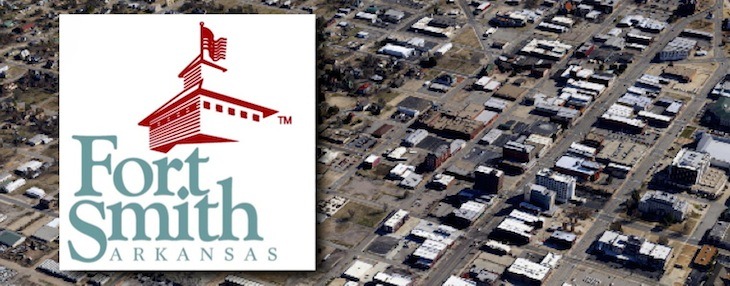Fort Smith sanitation rate increases and pick-up schedule changes approved
by August 19, 2020 3:58 pm 4,220 views

Fort Smith’s sanitation department has changed its name to the Department of Solid Waste Services. Along with the name change will come rising trash service rates to begin Oct. 1 and result in almost a 20% increase in trash collection revenue over the next 18 months.
The Fort Smith Board of Directors approved an ordinance that will raise residential trash collection rates to $15.89 plus tax a month by the first of 2022. The ordinance calls for the first step of the rate increase to begin Oct. 1, when rates will increase by $1.31 to $14.59 plus tax per month. The sanitation department and the city have been discussing rate increases since fall 2019.
“In the past three years, the city has increased landfill rates and roll-off rates. The time has come for a residential increase and a commercial increase,” said Kyle Foreman, director of sanitation, in a memo to City Administrator Carl Geffken.
The city’s last residential increase was in 2007. The rates were decreased by almost 8% in 2013, Foreman said.
The increase to $15.89 will boost residential trash collection revenue by a total of 19.65% over almost 18 months. Foreman encouraged customers who will have difficulty with the $1.31 per month increase that begins in October can apply for Project Concern. Project Concern is a utility assistance program established by the city to provide relief to low-income customers who use utility services solely for residential purposes. Applicants must provide a completed and signed application along with proof of income for all household members. The applicant’s city utility bill must be in their legal name.
Eligibility is based on 165% of the current federal poverty level guidelines. Participants receive a 50% discount on base water service charges, 50% rated discount on sewer services and 19% discount on sanitation services.
Along with the residential rate increase, yard waste and recyclable materials will go to every other week curbside pick-up instead of the current every week pickup. Information will go out with city utility bills explaining the changes. City-owned recycle carts are available to customers for no additional charge. Customers can have up to five recycle carts, which are available in 65- and 95-gallon size.
Residential customers also are eligible to receive a 95-gallon yard waste cart if they need one. The carts can hold yard waste, leaves, grass clippings and small brush. The carts will be delivered to customers if they call and request one. Yard waste also will be collected every other week. Residential customers receive one 95-gallon trash bin for regular refuse, which is collected weekly. That cart is included with the base rate. Additional carts are available at the customer request.
Director and Vice Mayor Kevin Settle requested that the fees for additional carts be raised. One additional cart will be an additional $10 a month. Starting with cart three, each cart will be an additional $15 a month. For example, after Oct. 1, a residence having four regular refuse carts, would pay the base rate, plus $40. Settle said he hoped the increase would encourage recycling and decrease what is going to the landfill and at the same time discourage a customer allowing others to use their trash pickup.
“I don’t think any of us want to increase rates. … (B)ut it is important to do what we need to cover the costs. We’ve done a lot of back and forth, and I believe this is set as low as we can,” said Director Neal Martin.
The ordinance passed six to one. Director George Catsavis voted against the ordinance, noting that while he understood what Foreman said about the need for a rate increase and believed he was doing an excellent job of running the department and being fiscally responsible, a $1.30 increase could really hurt a lot of people.
“I know a dollar or two dollars doesn’t seem like much to most people. And it really isn’t. But to some, especially with the COVID-19 going on, unemployment, and there’s a lot of families struggling. I want people to understand that. There are little children not getting fed at night over a few dollars. … I just can’t in good conscience, at this time, support this,” Catsavis said.
